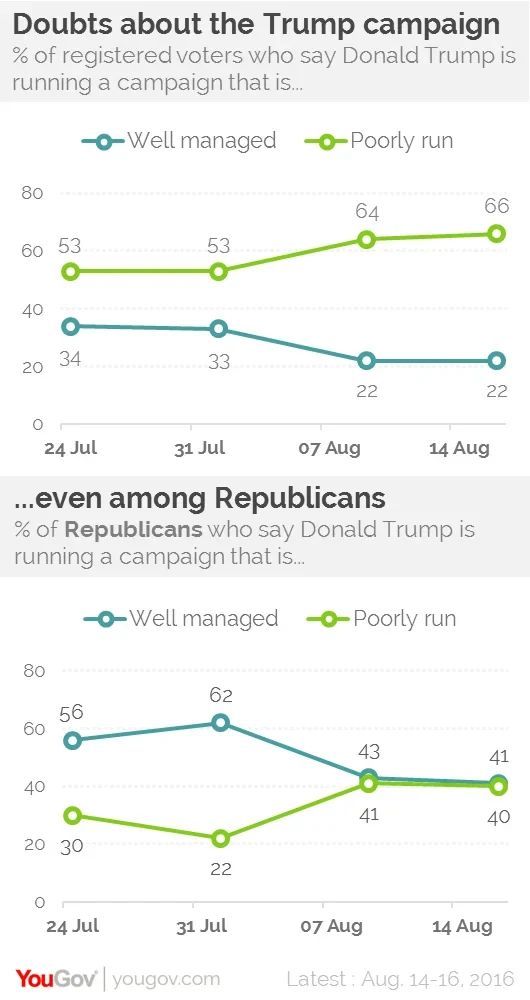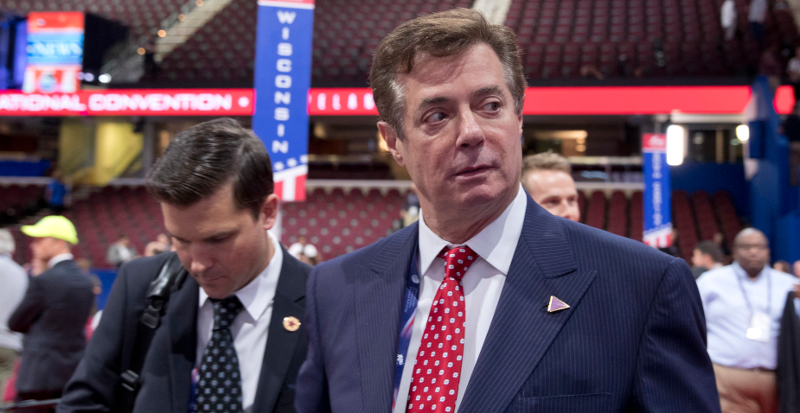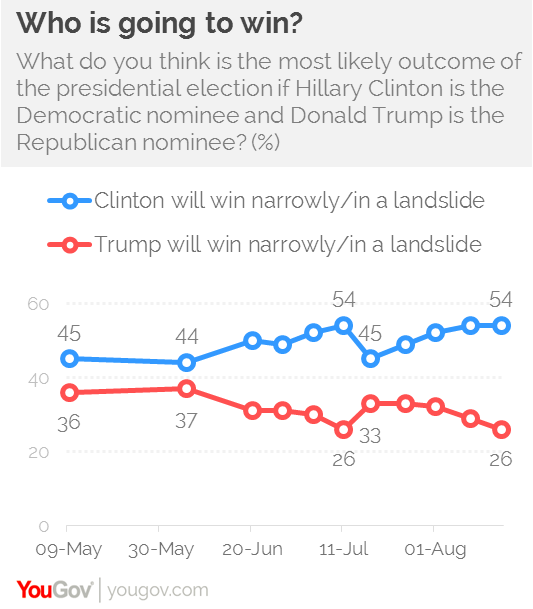Bad campaigns can lose elections – they might also lose voters
In 2008, a political novice defeated his party's political establishment, and then led that party to an electoral rout in November. A key strategist for that campaign suggested the two events were connected in an important way: the tough nomination process gave an inexperienced candidate the chance to prove his mettle in the eyes of the public.
Donald Trump, the billionaire businessman whose campaign chairman resigned on Friday, faces the opposite challenge.
Even before the week’s campaign shake-up, 66% of Americans said his campaign was “poorly managed”. Only 22% say the campaign is “well run”. Even many Republicans are having doubts. Meanwhile 55% say Clinton is running her campaign well.

There are obvious disadvantages to running a campaign badly, including difficulties getting a message out before election day and getting the vote out on election day. But substandard campaign management can also reflect poorly on the campaign itself, creating a vicious cycle. In fact 39% of registered voters say a presidential candidate’s ability to manage his or her campaign affects how they view that candidate “a great deal”, while another 41% say it affects their view at least a “moderate amount”.
Put that together with the fact that voters are far more likely to laud Clinton’s campaign than Trump’s, and it suggests perceived chaos in the Trump campaign could hurt him independently of any actual campaign mechanics.
These perceptions may even hurt Trump among those most likely to support the GOP nominee: Republicans. Republicans and Republican-leaning independents who say campaign management affects their opinion of a candidate are much less likely to support Trump. On top of that, compared to before the Republican convention, support for Trump is unchanged among Republicans who say campaign management doesn't affect their opinion of a candidate, but down slightly among those who say it does.

However, there are ways to interpret this data that suggest different conclusions.
For one, weak support for Trump among certain groups may be overdetermined – there could be many reasons certain voters are worried about Trump, and concerns about his campaign management skills may be an additional, but not essential, part of the picture. To this point, Republicans with doubts about Trump’s campaign management are also much more likely than other Republicans to doubt his qualifications to be president, his ability to deal with terrorism or other challenges, and even his honesty.
There is also something called the “halo effect”. People who already have a particular impression of Trump may let that assessment spill over into other areas. This might explain why Trump voters are only half as likely as Clinton voters (26% versus 54%) to say campaign management abilities affect their views of the candidates. In other words, voters internalize their preferred candidate’s strengths and weaknesses, and allow that to shape their assessment about what's important for candidates in general.
And for some voters, giving the Trump campaign negative ratings may simply be another way of acknowledging that the campaign is struggling. Just 26% of Americans now expect Trump to win in November, down from 35% right before the Republican convention.
The flipside is that voters may become more impressed with Trump’s campaign management style if he starts making good on one of his earliest campaign pledges – and starts winning.











